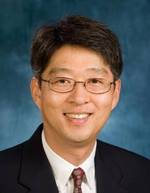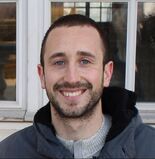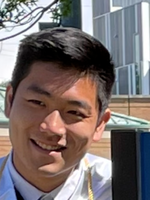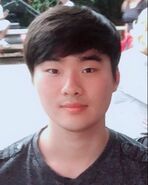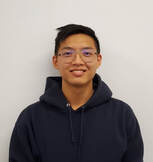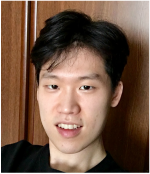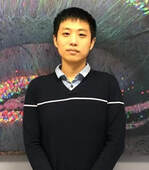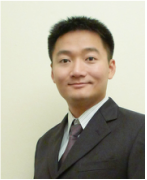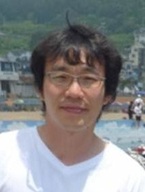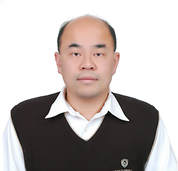Professor
Euisik YoonElectrical Engineering and Computer Science Dept.
2406 EECS Bldg., 1301 Beal Avenue Ann Arbor, MI 48109-2122 Phone: (734) 615-4469 Fax: (734)763-9324 Email: [email protected] Euisik Yoon received the B.S. and M.S. degrees in electronics engineering from Seoul National University in 1982 and 1984, respectively, and the Ph.D. degree in electrical engineering from the University of Michigan, Ann Arbor, in 1990. From 1990 to 1994 he worked for the National Semiconductor Corp. in Santa Clara, CA, where he engaged in researching deep submicron CMOS integration and advanced gate dielectrics. From 1994 to 1996 he was a Member of the Technical Staff at Silicon Graphics Inc. in Mountain View, CA, where he worked on the design of the MIPS microprocessor R4300i and the RCP 3-D graphic coprocessor. He took faculty positions in the Department of Electrical Engineering at Korea Advanced Institute of Science and Technology (KAIST) in Daejon, Korea (1996-2005) and in the Department of Electrical and Computer Engineering at the University of Minnesota, Minneapolis, MN (2005-2008), respectively. During the academic year of 2000-2001, he was a Visiting Faculty at Agilent Laboratory, Palo Alto, CA. In 2008, he joined the Department of Electrical Engineering and Computer Science at the University of Michigan, Ann Arbor, MI, where he is a Professor and the Director of NSF International Program for the Advancement of Neurotechnology (IPAN). He served as the Director of Solid-State Electronics Laboratory (2011-2015) and the Director of Lurie Nanofabrication Facility (2011-2016) at the University of Michigan. Currently, he is leading the NSF NeuroNex Hub: Multimodal Integrated Neural Technologies (MINT), disseminating neurotechnologies to the research community. His research interests are in MEMS, integrated microsystems, and VLSI circuit design. Dr. Yoon has served on various Technical Program Committees including the Microprocesses and Nanotechnology Conference (1998), the International Sensor Conference (2001), the IEEE Asia-Pacific Conference on Advanced System Integrated Circuits (2001-2002), the International Conference on Solid-State Sensors, Actuators and Microsystems (Transducers) (2003, 2005), the IEEE International Electron Device Meeting (2006-2008) and the IEEE International Conference on Micro Electro Mechanical Systems (2006, 2009-2010). He also served on the IEEE International Solid-State Circuit Conference program committee (2003-2007) and was a general chair of International Symposium on Bio Micro & Nanosystems (2005). Currently, he serves as an associate editor for IEEE Solid-State Circuits Letters. [personal webpage] |
Post-Doctoral Researchers
Vittorino LanzioVittorino Lanzio received his B.S. in Physical Engineering (2014), Masters in Nanotechnologies (2016), and Ph.D. in Electronic Engineering (2021) from Politecnico di Torino (Italy). He pursued research on passive optoelectrodes integrating photonics for neural sensing and stimulation at the Molecular Foundry (Lawrence Berkeley National Laboratory) from 2016-2021. His main research interests concern the miniaturization, micro/nanofabrication, and integration of multifunctional devices for brain studies.
e-mail: [email protected] |
Jose Roberto Lopez RuizRoberto obtained his B.S. in Biomedical Engineering from the National Polytechnic Institute in Mexico City and his PhD degree in Biomedical Sciences (Neuroscience) from the University of Guadalajara, Mexico. After a 3 year postdoctoral fellowship at Dr Edward Stuenkel’s lab studying the adrenomedullary stress response, he joined the Yoon Lab to test, validate and disseminate the current and future neural probes that are being developed at the lab, and to implement novel application for these state of the art technologies.
Office: #2421 EECS e-mail: [email protected] |
|
|
|
Research Engineers
Robert GordenkerOffice: #2215 EECS
email: gordenk@umich.edu |
Doctoral Students
Wangbo ChenWangbo Chen received his B.S.E in electrical engineering and biomedical engineering and M.S in electrical engineering from Case Western Reserve University at Cleveland, OH, in 2021 and 2022. He is currently pursuing a Ph.D. degree in electrical engineering at the University of Michigan, Ann Arbor. His research interests are neural interfaces, biomedical electronics, and mixed-signal integrated circuit design.
Office: #2421 EECS e-mail: [email protected] |
Lawrence ChenLawrence Chen received his BS/MS degrees in Mechanical Engineering at the National Taiwan University in 2015/2018. He had worked at HTC Vive in 2018-2021 as a Mechanical Engineer to design virtual reality headsets. He is pursuing PhD degree in Mechanical Engineering at the University of Michigan. His current research interests are Hydro-Seq and other microfluidics designs.
Office: #2421 EECS e-mail: [email protected] |
Yehyun ChoiYehyun received his B.S. in Electrical Engineering from the University of Texas at Dallas in 2017, and his M.S. in Electrical and Computer Engineering from University of Michigan in 2019. Currently, he is pursuing a Ph.D. degree in Electrical Engineering at University of Michigan. His research interests include circulating tumor cell liquid biopsy systems, high throughput microfluidic systems and single cell analysis devices.
Office: #2421 EECS e-mail: [email protected] |
Meng-Lin (Marine) HsiehMeng-Lin (Marine) received his BS and MS degrees in Power Mechanical Engineering at National Tsing Hua University (Hsinchu, Taiwan) in 2019 and 2020 respectively. His masters research is in the field of MEMS tactile sensors. He is pursuing a PhD degree in Electrical and Computer Engineering at the University of Michigan. His current research interests are designing optogenetic neural probes.
Office: #2421 EECS e-mail: [email protected] |
Hyunsoo SongHyunsoo Song received his B.S. and M.S. degrees in Electrical Engineering at the Seoul National University (Seoul, South Korea) in 2010 and 2012, respectively. Until 2016, he had worked at Pixelplus (Suwon-si, South Korea) to design CMOS image sensor pixels. Currently, he is pursuing a Ph.D. in Electrical Engineering at the University of Michigan, focusing on mixed-signal circuit designs. His current interests include CMOS image sensors and low-noise, energy-efficient sensor interfaces.
Office: #2421 EECS e-mail: [email protected] |
Yi TianYi Tian received his two BS degrees in Medical Information Engineering and Rehabilitation in GZUCM (Guangzhou, China), 2019. He had worked in Lucas Sjulson and Renata Batista-Brito's lab as a research assistant at Albert Einstein college of Medicine (New York) in 2019-2020. He is pursuing a PhD degree in Biomedical Engineering at the University of Michigan. His current research interests are more related with neural interface systems and he will do the neuroscience experiments. His background is relatively unique, let's look forward to his work.
Office: #2421 EECS e-mail: [email protected] |
Past Research Scientists
Yu-Chih ChenYu-Chih Chen received his dual bachelor degrees in Electrical Engineering and Law from the National Taiwan University, Taipei in 2008, his Ph.D. degree in Electrical & Computer Engineering at the University of Michigan, Ann Arbor in 2014. He worked as a research faculty in both Electrical & Computer Engineering Department and Forbes Institute for Cancer Discovery of the University of Michigan, Ann Arbor. Yu-Chih was a recipient of the TSMC Outstanding Student Research Award (2008), Orienstein Ph.D. Fellowship (2009), Best Post-Doctoral Speaker Award in Microfluidics in Biomedical Sciences Training Program (2015), and Emerging Forbes Scholar selected by Forbes Institute for Cancer Discovery (2017). He has served as a Session Chair and judge for Engineering Graduate Symposium, the University of Michigan, and Microfluidics in Biomedical Sciences Training Program (MBSTP). His current research focuses on microfluidic high-throughput single-cell assays, next generation sequencing (NGS) for single cells, machining learning based on cellular morphology. Collectively, the integrative method enables the discovery and validation of novel regulators in cancer initiation and metastasis. He is now working as an Assistant Professor of University of Pittsburgh.
e-mail: [email protected] |
Sung-Yun ParkSung-Yun Park received his B.S. in Electrical Engineering from the Pusan National Univerisity (Busan, South Korea) in 2005, his M.S. in Electrical Engineering from the Korean Advanced Institute of Science and Technology (Daejeon, South Korea) in 2008, and his M.Eng. in Electrical and Computer Engineering from the Cornell University (Ithaca, U.S.) in 2011. He has received a Ph.D. degree in Electrical Engineering from University of Michigan (Ann Arbor, U.S.) in 2016, while working in the Yoon Lab. From 2009 to 2010, he was a mixed signal IC designer at the Fairchild Semiconductor, Buchoen, South Korea. Having previously worked with photonic device research during his B.S. and M.S. studies, Sung-Yun is currently interested in mixed signal IC design. His current focus is on low power, low noise mixed signal processing IC and power management IC design for biomedical systems. He is currently affiliated with the Department of Electronics Engineering, the Pusan National University, South Korea.
e-mail: [email protected] |
John SeymourJohn Seymour is research faculty in EECS and a lead investigator on several neurotechnology projects in the Yoon Lab. His research aims to generate next-generation bioelectronic devices by realizing biomimetic neural interfaces and novel system integration. He earned his B.S. in Engineering Physics from Ohio State University, and his M.S. (2004) and Ph.D (2009) in Biomedical Engineering here at the University of Michigan. He worked at NeuroNexus, a neurotechnology firm, for 4 years prior to coming back to academia. His research interests are in brain and organ mapping tools by employing MEMS, electrophysiological sensors, implantable medical devices, optical stimulation tools, better EMI design, and advanced packaging. He is a co-PI on several projects and has led several successful SBIR grants as the lead PI around long-term tissue response and high-density optoelectrodes. Currently he has 9 issued patents. He is currently affiliated with Department of Neurosurgery at UT Health and the Department of Electrical and Computer Engineering at Rice University.
e-mail: [email protected] |
Past Visiting Scholars
Prof. Yu-Ting Cheng (July 2018 - June 2019)Yu-Ting Cheng (SM’07) was born in Taiwan, China. He received the B.S. and M.S. degrees in materials science and engineering from National Tsing Hua University, Hsinchu, Taiwan, in 1991 and 1993, respectively, the M.S. degree in materials science and engineering from Carnegie Mellon University, Pittsburgh, PA, in 1996 and the Ph.D. degree in electrical engineering from the University of Michigan, Ann Arbor, in 2000. His Ph.D. thesis focused on the development of novel vacuum packaging technique for microelectromechanical systems (MEMS) applications. After finishing his Ph.D. study in 2000, he became a research staff member with IBM Thomas J. Watson Research Center, Yorktown Heights, where he was involved in several system-on-a-package (SoP) projects. In 2002, he joined the Department of Electronics Engineering, National Chiao Tung University, Hsinchu, Taiwan, as an Assistant Professor and has been promoted as a Professor since 2009. His research interests include the fundamental study of materials for microsystem integration and nano/MEMS applications, SoP, and the design and fabrication of microsensors and microactuators.
Dr. Cheng was a co-recipient of the 2006 Best Paper Award presented at the 13th IEEE International Conference on Electronics, Circuits and Systems. He has served as a TPC member in many international conference including IEEE NEMS, IEEE Sensors, IEEE Transducers, IEEE ISMM, APCOT, etc. He also served 2018 International Conference on Smart Sensors, Taiwan, as a general co-chair. He is a member of IOP, and Phi Tau Phi. e-mail: [email protected] |
Past Post-Doctoral Researchers
|
Dr.
|
Year
|
Employer
|
|
Daeho Jeong
(U. of Michigan) |
2023
|
Samsung
|
|
Qiang Li
(U. of Michigan) |
2021
|
ASML
|
|
Seungwon Jung
(U. of Michigan) |
2020
|
KIST
|
Past Doctoral Students
|
Student
|
Year
|
Thesis Title
|
Employer
|
|
Eunah Ko
(U. of Michigan) |
2024
|
Next-generation Michigan Probes: Flexible and Multi-color micro-LED Optoelectrodes
|
Samsung
|
|
Sungjin Oh
(U. of Michigan) |
2024
|
Power-Efficient Neural Interface Circuits for Multi-Channel Deep-Brain Opto-Electrophysiology
|
MediaTek
|
|
Dongxiao Yan
(U. of Michigan) |
2022
|
Novel flexible neural interfaces: intracortical reconfigurable multimodal origami probe and intrafascicular microneedle electrode array
|
Paradromics
|
|
Kyounghwan Na
(U. of Michigan) |
2020
|
ASIC-Integrated, High Density Flexible Electrode Array
with Long-Term Reliability |
Applied Materials
|
|
Zhixiong Zhang
(U. of Michigan) |
2020
|
Cancer Drug Screening Scale-up: Combining Biomimetic Microfluidic Platforms and Deep Learning Image Analysis
|
Amazon
|
|
Kanghwan Kim
(U. of Michigan) |
2019
|
Stimulation-artifact-free, High-channel-count MicroLED Optoelectrodes
|
KIST
|
|
Yu-Ju Lin
(U. of Michigan) |
2019
|
Wireless Data Transmission Systems for High Channel Count Neural Recording / Stimulation Microsystems
|
Qualcomm
|
|
Kyuseok Lee
(U. of Michigan) |
2019
|
An Energy-Efficient CMOS Image Sensor with Embedded Machine Learning Algorithm
|
Micron Technology
|
|
Adam Mendrela
(U. of Michigan) |
2018
|
Bidirectional Neural Interface Circuits with On-Chip Stimulation Artifact Reduction Schemes
|
Draper Lab
|
|
Yu-Heng Cheng
(U. of Michigan) |
2018
|
High-Efficiency Microfluidics for Single Cell Phenotypic and Transcriptomic Analysis of Rare Cancer Cells
|
Apple
|
|
Komal Kampasi
(U. of Michigan) |
2017
|
Implantable Low-Noise Fiberless Optoelectrodes for Optogenetic Control of Distinct Neural Populations
|
Lawrence Livermore National Laboratory
|
|
Jihyun Cho
(U. of Michigan) |
2016
|
CMOS Sensors for Time-Resolved Active Imaging
|
Apple
|
|
Sung-Yun Park
(U. of Michigan) |
2016
|
Area- and Energy-Efficient Modular Circuit Architecture for Parallel Neural Recording Microsystems
|
University of Michigan
|
|
Patrick Ingram
(U. of Michigan) |
2015
|
Single Cells to Spheres: Microfluidic Assays for Characterization of Cancer Stem-like Cells
|
University of Wisconsin-Madison
|
|
Fan Wu
(U. of Michigan) |
2014
|
Implantable Neural Probes for Electrical Recording and Optical Stimulation of Cellular Level Neural Circuitry in Behaving Animals
|
Diagnostic Biochips, Inc.
(SB Microsystems) |
|
Yu-Chih Chen
(U. of Michigan) |
2014
|
Comprehensive Single Cell Microfluidic Chips for the Study of Cancer Heterogeneity and Metastasis
|
University of Michigan
|
|
Seok Jun Park
(U. of Michigan) |
2014
|
Bio-Inspired Optic Flow Sensors for Artificial Compound Eyes
|
Apple
|
|
Sun-Il Chang
(U. of Michigan) |
2013
|
Nano-Watt Modular Integrated Circuits for Wireless Neural Interface
|
Apple
|
|
Khaled M. Alashmouny
(U. of Michigan) |
2012
|
Analog Front-End Circuits for Massive Parallel 3-D Neural Microsystems
|
Apple
|
|
Xia Lou
(U. of Michigan) |
2012
|
A High-throughput Microfluidic Platform for Profiling Photo-sensitizer Efficacy in Cancer Therapeutic Applications
|
Ford
|
|
Jaehyuk Choi
(U. of Michigan) |
2012
|
An Energy-efficient Adaptive CMOS Image Sensor
|
Sungkyunkwan University
|
|
Young-Ji Kim
(U. of Minnesota) |
2009
|
Development Of Multi-Purpose Microfluidic Platform For Single-Cell And Pairwise Cell Interaction Assay
|
Samsung
|
|
Jaehoon Chung
(U. of Minnesota) |
2009
|
Microfluidic Single Cell Clonal Culture Chips for Heterogeneity Stud
|
Harvard Medical Center, IME
|
|
Seong-Jin Kim
(KAIST) |
2007
|
Label-free CMOS DNA Sensor with On-Chip Noise Reduction Scheme for Real-time DNA Quantification
|
Samsung, IME, UIST
|
|
Dae-Eun Park
(KAIST) |
2006
|
MEMS-Based Fuel Reformer Integrated with Catalytic Combustor Using Carbon Nanotubes as Catalyst Supports
|
MagnaChip
|
|
Sang-Wook Han
(KAIST) |
2006
|
A Wide Dynamic Range CMOS Image Sensor with In-Pixel Analog Memory for Pixel Level Integration Time Control
|
KIST
|
|
Taeksang Song
(KAIST) |
2006
|
A Sub-mW 2.4GHz Current-Reused CMOS Receiver Front-End Using Sub-Harmonic Mixer for Wireless Sensors Network
|
Hynix Semiconductor
|
|
Heon-Min Lee
(KAIST) |
2005
|
A Mass-Sensitive Microchemical Sensor System Using Thin Film Bulk Acoustic Resonators (TFBARs)
|
LG Elite
|
|
Il-Joo Cho
(KAIST) |
2004
|
Electromagnetically-Actuated MEMS Switches for Optical and RF Communication Systems
|
KIST
|
|
Hyung-Kew Lee
(KAIST) |
2004
|
A Wide Range Linearly-Tunable Optical Filter Using Magnetic Actuation
|
Samsung, KRISS
|
|
Kwang-Hyun Lee
(KAIST) |
2004
|
A CMOS Active Pixel Sensor with Controlled Reset and Spatial-Temporal Multi-Resolution Readout
|
Samsung
|
|
Kwang-Seok Yun
(KAIST) |
2003
|
Microfluidic System for High-Throughput Cell-Based Assay
|
Sogang University
|
|
Eun-Chul Park
(KAIST) |
2003
|
Design and Fabrication of Low Phase Noise Integrated VCOs Utilizing MEMS Structures
|
Samsung
|
|
Jun-Ho Kim
(KAIST) |
2002
|
A Disposable Microfluidic Chip for DNA Sample Preparation of Nucleic Acid Analysis
|
Samsung
|
|
Kyung-Nam Han
(KAIST) |
2002
|
VLSI Design Using Redundant Binary Number System: Arithmetic Components for Floating-Point Datapath Unit
|
Synopsys
|

